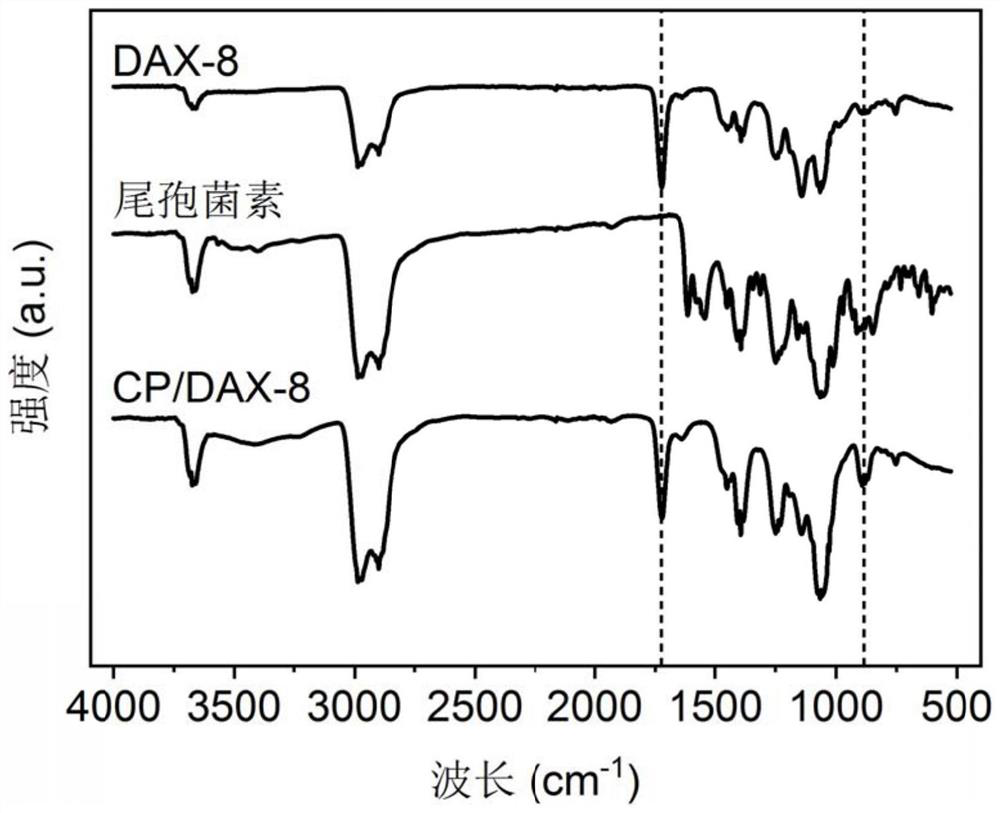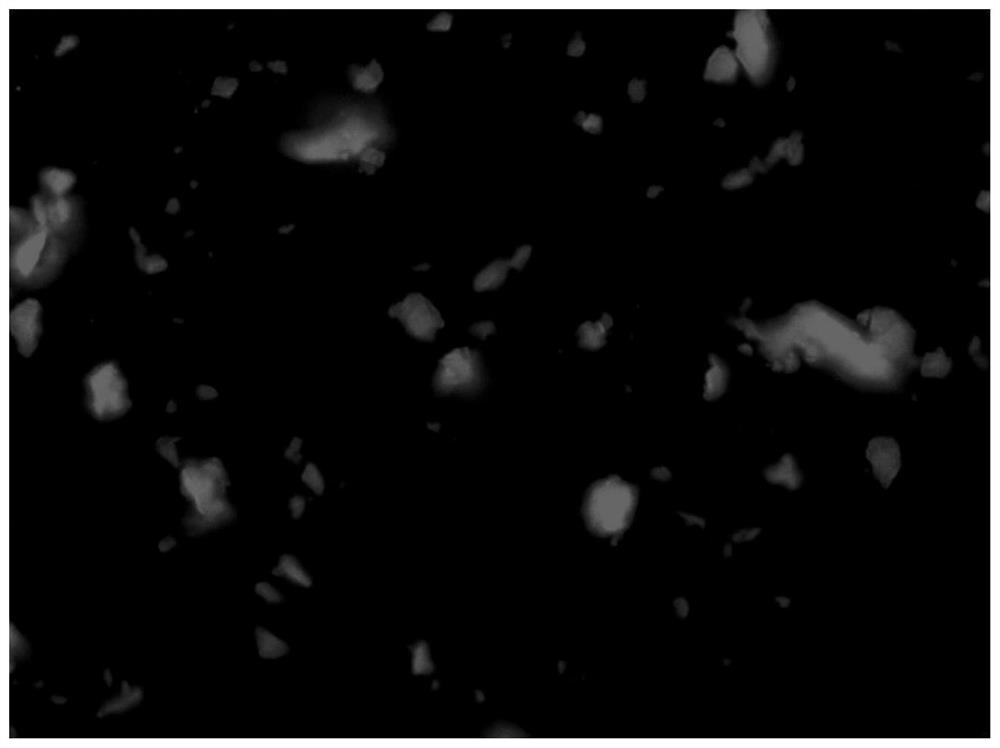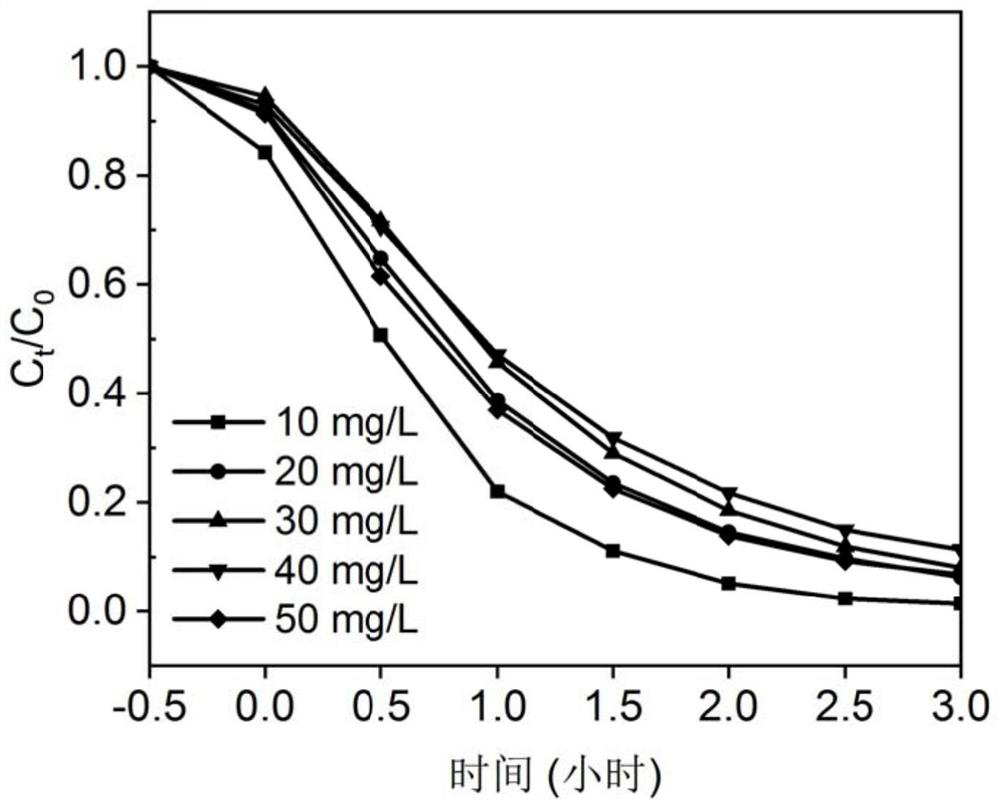Organic composite photocatalyst for degrading drugs and pathogenic bacteria and preparation method thereof
A photocatalyst and composite light technology, applied in organic compound/hydride/coordination complex catalysts, physical/chemical process catalysts, chemical instruments and methods, etc., can solve human health hazards, accelerate drug-resistant pathogenic bacteria, etc. problem, to achieve the effect of removal, improvement of photocatalytic degradation efficiency, and good stability
- Summary
- Abstract
- Description
- Claims
- Application Information
AI Technical Summary
Problems solved by technology
Method used
Image
Examples
Embodiment 1
[0051] [Example 1] Preparation of supported photocatalyst CP / DAX-8
[0052] CP / DAX-8 is prepared by stirring cercosporin and macroporous adsorption resin in a solvent: weigh 40 mg of cercosporin, dissolve it in 50 mL of methanol solution, add 1 g of macroporous adsorption resin Resin TM DAX-8), after magnetic stirring for 24h, the solid composite material was obtained by suction filtration. The solid was washed three times with methanol and ultrapure water, and then the solid material was vacuum-dried at 35°C for 24h, and finally the supported photocatalyst CP / DAX was obtained. -8.
[0053] For the raw material macroporous adsorption resin Supelite in this implementation TM DAX-8, cercosporin, and the prepared photocatalyst CP / DAX-8 were tested by infrared, figure 1 The infrared spectra of the macroporous adsorption resin, cercosporin and CP / DAX-8 in this example are shown by figure 1 It can be seen that the infrared spectrum of the synthesized CP / DAX-8 contains both the...
Embodiment 2
[0055] [Example 2] Degradation of ciprofloxacin
[0056] At room temperature, 40 mg of the catalyst CP / DAX-8 prepared in Example 1 was added to 10 mL of a 10 mg / L ciprofloxacin solution with a pH value of 7. Stir for 30 min under dark conditions, then at 15W (14.8mW cm -2 ) under fluorescent irradiation and continued stirring for 3 h. Three parallels were set in each group, and a sample was taken every 30 min, and the remaining amount of ciprofloxacin in the solution was detected by HPLC. The liquid phase conditions were 0.1% phosphoric acid water:acetonitrile=80:20, the flow rate was 1 mL / min, the detection wavelength was 277 nm, and the column temperature was 25°C. The test results showed that the degradation rate of ciprofloxacin reached 99.8%.
Embodiment 3
[0057] [Example 3] Degradation of ciprofloxacin
[0058] At room temperature, 40 mg of the catalyst CP / DAX-8 prepared in Example 1 was added to 10 mL of a 50 mg / L ciprofloxacin solution with a pH of 7. Stir for 30 min under dark conditions, then at 15W (14.8mW cm -2 ) Continue to stir for 3h under fluorescent irradiation, take a sample every 30min, and detect the remaining amount of ciprofloxacin in the solution by HPLC, and the detection method is the same as that in Example 2. The detection results showed that the degradation rate of ciprofloxacin reached 76.7%.
[0059] image 3 It is the degradation effect of ciprofloxacin with different initial concentrations (10mg / L, 20mg / L, 30mg / L, 40mg / L, 50mg / L) under CP / DAX-8 photocatalysis. Depend on image 3 It can be seen that the low concentration of ciprofloxacin is more conducive to improving the removal efficiency of CP / DAX-8.
PUM
 Login to View More
Login to View More Abstract
Description
Claims
Application Information
 Login to View More
Login to View More - R&D
- Intellectual Property
- Life Sciences
- Materials
- Tech Scout
- Unparalleled Data Quality
- Higher Quality Content
- 60% Fewer Hallucinations
Browse by: Latest US Patents, China's latest patents, Technical Efficacy Thesaurus, Application Domain, Technology Topic, Popular Technical Reports.
© 2025 PatSnap. All rights reserved.Legal|Privacy policy|Modern Slavery Act Transparency Statement|Sitemap|About US| Contact US: help@patsnap.com



